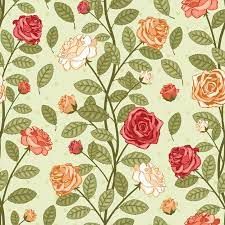
Call for Articles
Linguistic hybridity in literature
The last few decades have been characterised by a growing interest in literary multilingualism. Multiple studies have examined the way linguistic diversity manifests itself in literary works, for instance focusing on multilingual practices such as code-switching. However, fewer and often isolated studies (Jacquet 1972, Gauvin 2004, Montermini 2006, Bürger-Koftis, Schweiger and Vlasta 2010, Loison-Charles 2016, etc.) have focused on linguistic hybridization in literature, a process “whereby separate and disparate entities or processes generate another entity or process (the hybrid), which shares certain features with each of its sources” (Sanchez Stockhammer 2012). Despite being less commonly used than code-switching, linguistic hybridization has been employed by writers belonging to different times and literary traditions, from macaronic literature to Joyce, and spanning Rabelais, Twain, Fenoglio, Nabokov, migrant and borderland writers, Caribbean authors, multilingual poets (Pound, Eliot, Rosselli, Ståhlberg), artificial or constructed language creators, etc.
In this Special Issue, we aspire to relaunch the study of linguistic hybridization in literature, a phenomenon which works on different linguistic layers such as phonology, semantics, syntax, lexical and etymological levels. Instead of being conceived as a gratuitous multilingual form (Sternberg 1981), we argue that linguistic hybridity in literature is a tool used by writers for multiple reasons, spanning from narratological and fictional to political. Additionally, through hybridizations, writers often find a way to defamiliarise or pull out an object from the ordinary perception in order to create a new (multilingual) meaning. Russian Formalists understood literature as a way to renovate human perception and de-automatize semantic routines. This may easily happen thanks to the encounter between two or more different languages which is activated by the hybridization process.
We invite submissions that focus on theoretical approaches to literary hybridization, as well as analyses of specific case studies. Topics include but are not limited to:
- How can linguistic hybridization in literature be defined, what theories can be applied to it, what hybrid types are more commonly used by writers, at what linguistic level do these types operate?
- On what linguistic mechanisms does literary hybridity work in a text?
- What purposes or aims do writers aspire to achieve by employing linguistic hybridization?
- What typologies of text are more suitable to welcome linguistic hybridity?
- How can literary multilingualism be (re)conceived through the hybridization lens?
- In what way is creativity (and multilingual creativity in particular) related to hybridizations?
- How does linguistic hybridization differ from other multilingual practices?
- What impact might hybrid words have on the reader?
*
Please send a 300-word abstract in English and a brief bio to julie.charles@univ-lille.fr and mariannadeganutti5@gmail.com by the 21st October 2022.
We will inform authors of acceptance by the 16th December 2022.
Julie Loison-Charles (University of Lille)
Marianna Deganutti (Goethe University, Frankfurt)